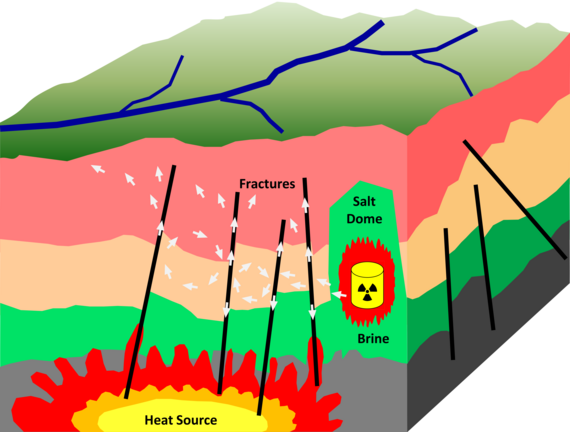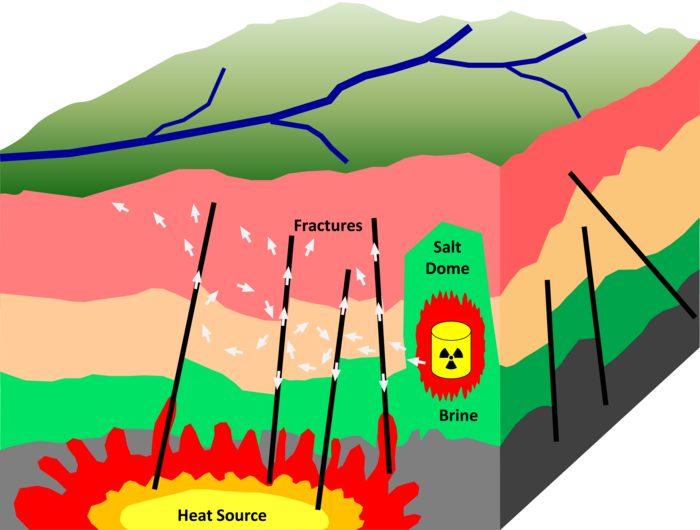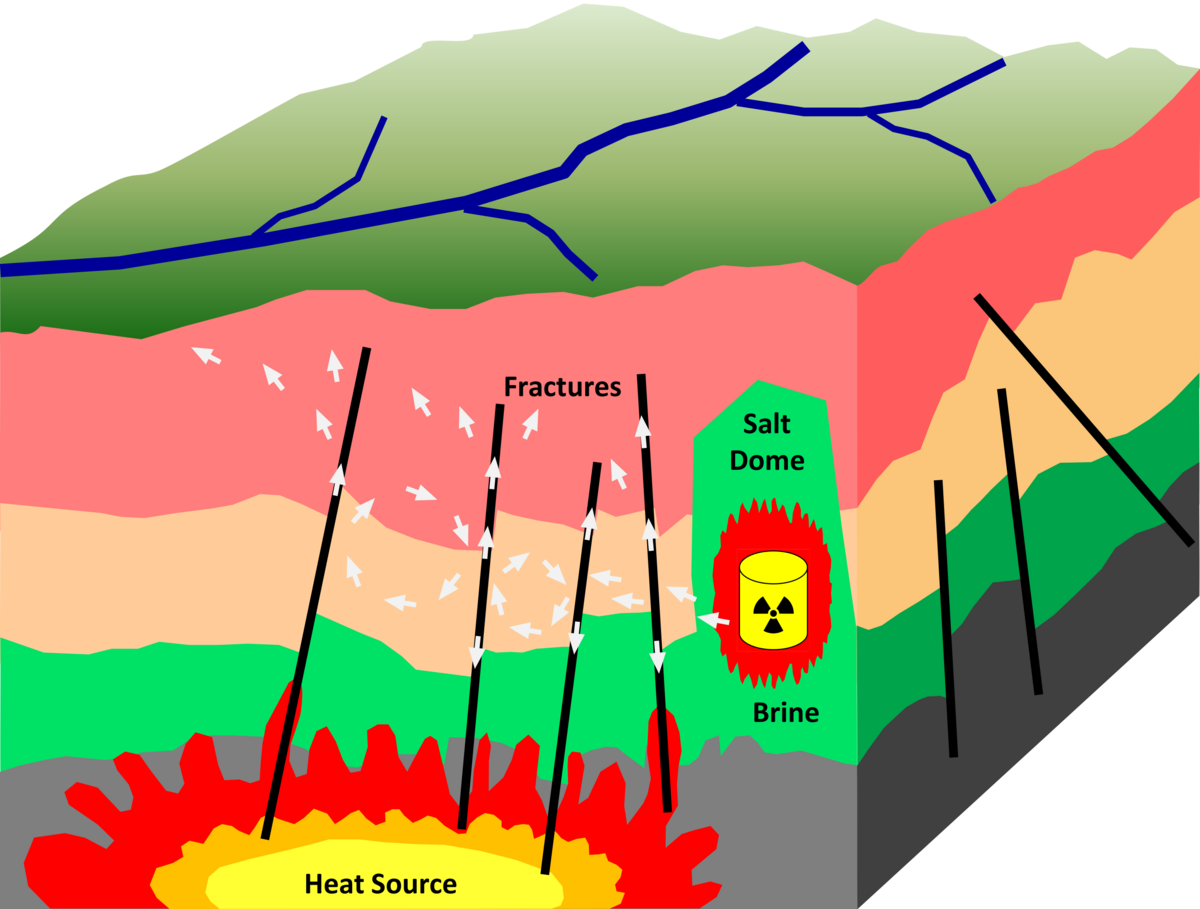Risk-based assessment of salt domes as disposal sites for nuclear waste
M.Sc. Jonas Suilmann, Prof. Dr. Thomas Graf
The final disposal of radioactive waste in deep geological formations aims to ensure the long-term isolation of the waste from the biosphere. For the long-term safety assessment of repositories, a safety time span of 1 million years applies. The final disposal of radioactive waste must therefore take place in geologically stable regions, for which salt formations are one possible option in northern Germany.
The aim of this project is to develop a platform for probabilistic assessment of unintentional leakage of radioactive materials associated with deep repositories. This platform will consist of the following components:
- numerical modelling environment to simulate complex flow and transport processes;
- probabilistic framework incl. Enhanced Bayesian networks
This platform is developed and applied using the example of salt formations (salt domes), which in principle represent an option in the search for repositories. To assess the uncertainty of deep repositories, the following processes are relevant in the modelling and will be included in the probabilistic assessment:
- density-driven (thermohaline) flow,
- heat transport,
- transport of dissolved salt and of radionuclides,
- fractured-porous rocks.
To assess the suitability of possible repository sites, the groundwater age also is of importance, which is also to be simulated. Since the exact rock parameters (e.g. location of fractures, permeabilities) and boundary conditions are unknown, this uncertainty enters into the creation of the probabilistic evaluation platform. The final product should be a risk-informed tool for the decision maker.
The project is being worked on by two project partners: Institute for Risk and Reliability (IRZ) (https://www.irz.uni-hannover.de/en/research/research-projects/research-projects/projects/risk-based-assessment-of-salt-domes-as-disposal-sites-for-nuclear-waste-radon) and Institute of Fluid Mechanics and Environmental Physics in Civil Engineering (ISU) at Leibniz Universität Hannover (LUH). The IRZ develops the probabilistic framework and the ISU carries out the numerical simulations.
The project is part of the research cluster “Uncertainties and Robustness with regard to the safety of a repository for high-level radioactive waste” (https://urs.ifgt.tu-freiberg.de/en/home) funded by the German federal company for radioactive waste disposal (BGE).



